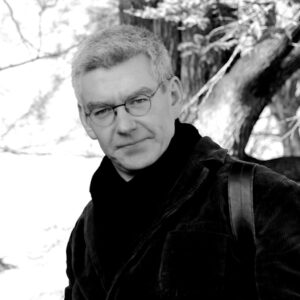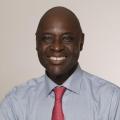Pape Gaye is President Emeritus of IntraHealth International, where he spent many years as President and CEO. During this time, he focused on ensuring human resources for health and family planning became a crucial part of the worldwide conversation on global health. More recently, Pape founded the Baobab Institute for Health and Development, based in Senegal. In this insightful conversation, Pape discusses power imbalances, the importance of partnerships in locally-led development, the need for global participation, and more.
This is an abridged transcript of their conversation; listen to the entire podcast or watch the video embedded below.
George Miller: Do you think it’s easy to define locally-led development?
Pape Gaye: It’s a very complex and complicated issue because there are many dimensions. At the center of it is resources and a lack of resources. It’s money and the absence of money. At the heart of it, I think it’s about development and people. And when people are involved, we know it’s not going to be simple. It all depends on what point of view you take; that’s what makes it complicated. One thing I think is accepted by all is that the objective of locally-led development is not controversial. That’s the dream of everybody who works in development – to reach a day where the people you support can do what you’re trying to teach them. They can do it on their own. I think what is complicated is the how, time, complexity, and, frankly, the environment.
These days the conversation has gotten more complicated because of what happened in the United States two summers ago: George Floyd, the conversation about decolonizing global health, the big focus we all have on equity, and the dream that we all have about putting women at the center of development … I think there’s a consensus now that it has to be something different – that the model worked to a certain extent, but it’s no longer working. And we are trying to figure out the right model, which makes it even more complicated because it’s almost like a process of discovery.
George Miller: Fundamentally, are we talking about how to address a power imbalance?
Pape Gaye: We have been operating for so long in a situation where we don’t have a level playing field. It might sound a little controversial to say that – because we know it’s not level. In fact, we know it’s taxpayers in the north making the sacrifice of donating some of their own resources. Why should it be level? My philosophy is that we need that global solidarity. Call it naive; I do not think we will succeed in the development agenda if we don’t have global solidarity which recognizes there are imbalances, and [that] we are making individual and collective commitments to change that. The paradigm shift needs to be done, in my opinion, with that caveat.


